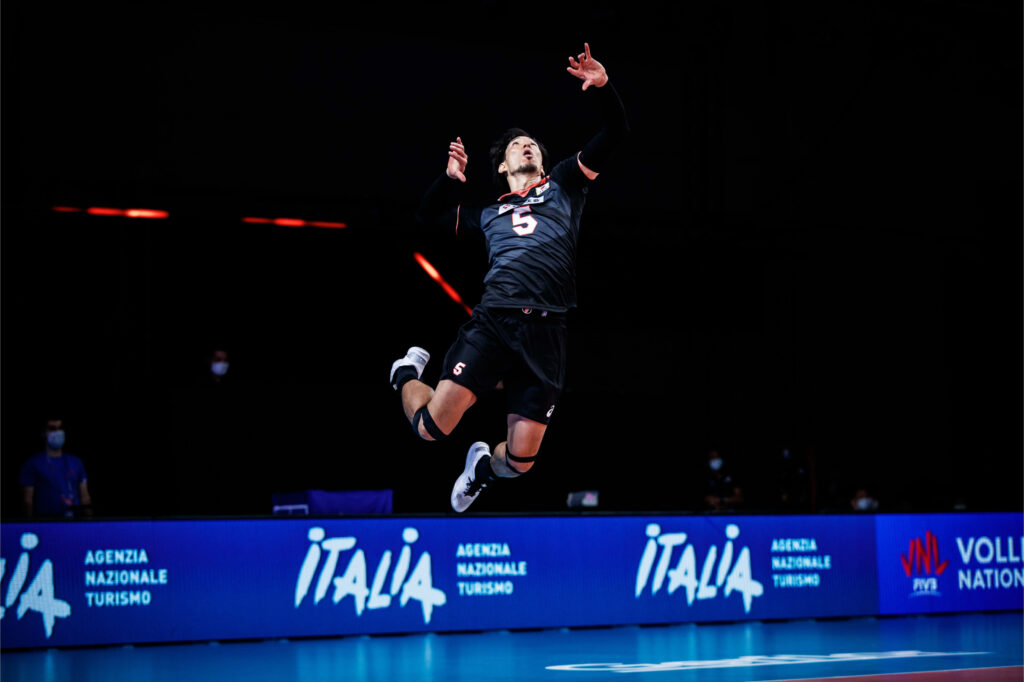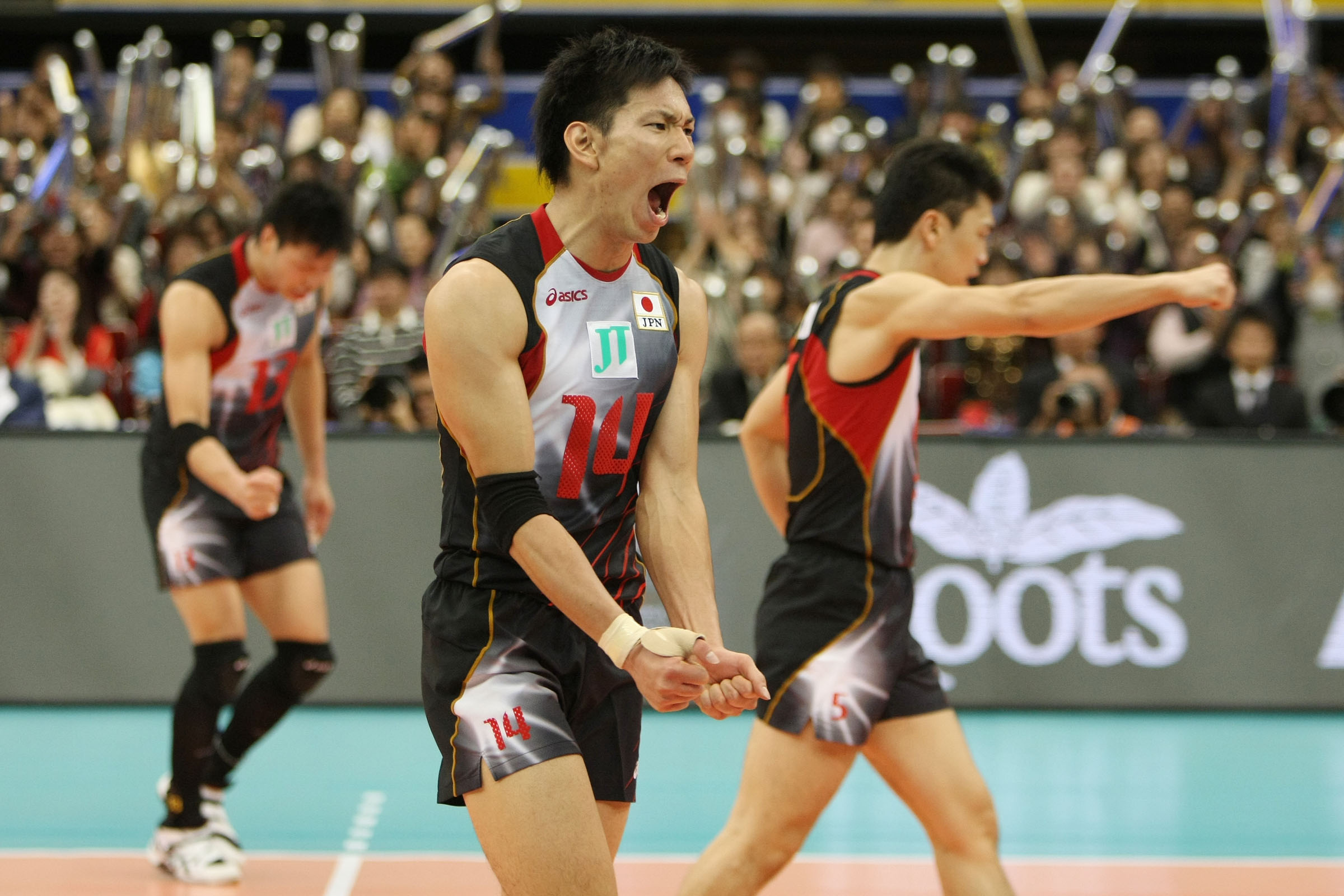The other day, it was announced that Tatsuya Fukuzawa, a member of the Japanese men's national volleyball team, will be retiring.
https://vbm.link/57327/
Fukuzawa was a special volleyball player to me too.
I first learned about Fukuzawa when he was still at Chuo University. Shimizu, who is the same age as me, played a great game at the 2007 World Cup, and that's how I got to know Fukuzawa. I first saw him on video at the 2008 Beijing OQT. I think he was mainly used as a relief server at that time, but I was still blown away by his jumping ability. He was 189 cm tall, but his highest jump was 355 cm. Later, he was given the catchphrase "Lord of the Air," and I was always fascinated by his jumps, which seemed to stop high in the air. There were certainly some roughness in his play, but I remember watching the games with excitement, thinking that with the two stars of Shimizu, the power ace on the left, and Fukuzawa, the jumping ace on the right, the team after Beijing would be interesting.
In fact, his performance at the Grand Prix held the following year was truly amazing. He defeated Poland, the European champion that year, in a full set in the first match, winning the first medal for Japanese men in 32 years. Fukuzawa himself also won the best attack success rate in the tournament with a total of 55.81%, and was awarded the Best Spiker Award. This figure beat out many famous players who are still active at the world's top level today, such as Leal (formerly of Cuba, currently representing Brazil), Krek (formerly representing Poland), and Leon (formerly of Cuba, currently representing Poland). At that time, I really had high expectations for Fukuzawa. I loved his play. I fantasized that he and Shimizu would achieve even better results than the last time at the next World Championships and the London Olympics.
However, since 2010, Fukuzawa has been in a slump. He was a big star in the V-League, finishing in the top six almost every year and being selected as the league MVP in 2012, but he continued to struggle on the national team. Like Shimizu, he would blindly spike and get shut out by the opponent's high block, and he made many serve errors, so gradually a bad image of him started to be overwritten and I couldn't like him any more. In particular, the play of Yoneyama, who was opposite him, was excellent, so the contrast between them was even more striking. But more than that, I think the disappointment was greater because I had high expectations. I just couldn't watch it.
The Japanese national team itself showed signs of recovery in both popularity and ability at the 2015 World Cup, but Fukuzawa was not there. However, he was suddenly called up for the Rio Olympics World Final Qualifiers the following year. It seemed that they would grab a ticket to the Rio Olympics with the momentum from the World Cup, but I will say without fear of criticism that Fukuzawa's performance at this time was the worst, and it is no exaggeration to say that he was the reason they missed out on the Olympics. As I mentioned in my previous article about Shimizu, Shimizu's performance at the 2015 World Cup erased my bad image and I started to like him again, but Fukuzawa's impression and evaluation of him has worsened even more in my mind due to this incident.
He returned to the national team in 2018, and after making major changes to his playing style, he played in the starting lineup in the 2019 World Cup, mainly opposite Ishikawa, and contributed to the team's fourth-place finish. His performance certainly erased the bad image he had in the Rio OQT, but I didn't feel the same excitement from him as I did in 2009. His defensive stability was certainly impressive, but I got the impression that he had become a small-minded player in a bad way. He began to actively use soft shots, which were not seen much before, in his spikes and serves, but he didn't seem to be as reliable in crucial situations as he used to be. There are many different opinions, but personally I was very disappointed that he had become such a player. I would have liked him to be a player who was higher, more aggressive, made fewer mistakes, and was less blocked. He was not selected for the Tokyo Olympics this time, but I personally think that his weak offensive skills, including his serves, were the reason for his absence.
In the end, Fukuzawa retired before I was able to like him again like I did Shimizu. As someone I really liked and had high hopes for, I wish I had liked him again before he retired.
Finally, thank you very much for your hard work, Mr. Fukuzawa. I look forward to your continued success as a businessman.

Photo: FIVB
